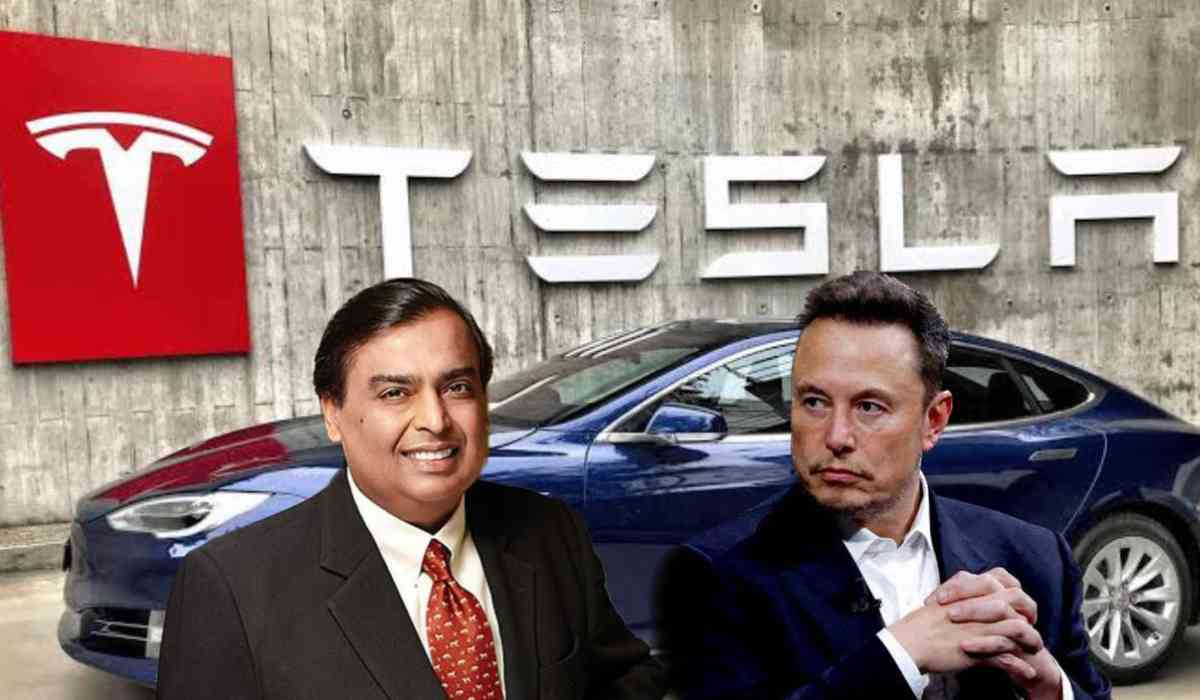India has been making efforts to switch to EVs, the main reasons being environmental concerns and fuel prices reaching heights. However, The Electric Vehicle Industry in India is still in a very early stage as compared to other countries like China. But the Government with initiatives is likely working towards attracting and bringing in foreign players like Tesla (the biggest player) to India meanwhile Elon Musk has also shown interest in bringing Tesla to the Indian Automobile Market.
In a Major development, It seems like Tesla is looking for a local partner to help it establish its business in India. According to Hindu BusinessLine, Tesla Inc. and Mukesh Ambani's Reliance Industries Ltd. are ‘in talks’ on a potential joint venture to construct an electric vehicle manufacturing facility in India.
What is Reliance’s Role?
Reliance's exact involvement remains undecided. However, it is anticipated that Reliance will be a key player in helping Tesla set up the plant and related activities in India. As per reports, Reliance's goal in the joint venture is to advance India's capacity for electric vehicles. This emphasises that this initiative should not be interpreted as Reliance's entry into the automotive sector.
“Talks are at initial stages and have been ongoing for over a month,” as per reports.
This month, India can expect some senior Tesla officials to visit regarding finalising the plant's location and forming a joint venture with RIL. However, It depends on whether RIL will be in a Joint Venture with Tesla, as JV talks aren't exclusive. If negotiations don't work out, Tesla may look for a different domestic partner.
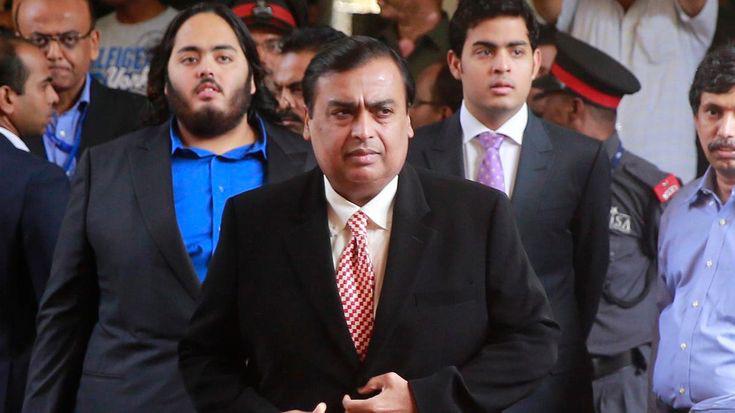
Elon Musk’s Plans in India
Tesla's coming to India has long been anticipated, even during PM Modi’s visit to the US and his meeting with Elon Musk indicated a development in this. Moreover, Elon Musk has at times indicated his ambition to join the Indian market, as per his awareness of the rising demand for new-energy cars among the Indian middle class.
“India is now the most populous country in the world, based on population. India should have electric cars just like every other country has electric cars. It’s a natural progression to provide Tesla electric vehicles in India,” Musk said in an X Spaces session with Nicolai Tangen, CEO of Norges Bank Investment Management.
Elon Musk, the CEO of Tesla, was thinking about raising its minimum initial investment to build a plant to about $2 billion and increasing its purchases of auto parts from India to about $15 billion. It has been conducting site surveys, with Maharashtra and Gujarat being considered as possible locations for the plant, where Maharashtra was reportedly the preferred option. Moreover, it is said that negotiations for a comparable agreement with the EV giant are still going on with the Telangana government.
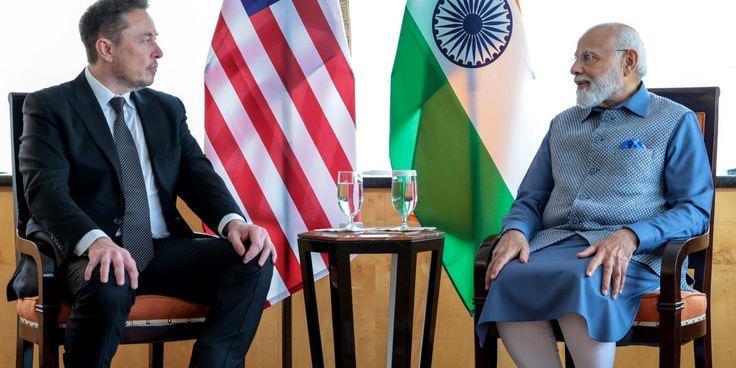
Reuters reported earlier this month that Tesla has started producing right-hand drive cars at its German facility, citing sources. Later this year, these cars are expected to be exported to India, a sign of Tesla's advancement toward possible entry into the third-largest auto market in the world.
EV Market in India
Looking at the stats:
In 2023, only 2% of all cars sold were electric models; however, by 2030, the government wants this percentage to rise to 30%. Moreover, There will be a 66% increase in electric vehicle (EV) sales in India in 2024 after nearly doubling in 2023. In 2024, the expanding sales of electric vehicles (EVs) will account for 4% of all PV sales, as per reports. Estimates for 2024 show a 66% increase in EV sales, helped by government incentives and infrastructure improvements. It is predicted that by 2030, EVs will account for one-third of the personal vehicle market in India.
Tata Motors Domination:
In 2023, With a 72 per cent market share, Tata Motors with a strong portfolio and an alliance with Uber, took the lead, overtaking MG Motors and Mahindra with 10.8 and 9 per cent, respectively, as the leading players in India's EV market.
Key models from Tata Motors, such as the Tiago, Nexon, and Tigor, drove sales, with MG ZS and Mahindra XUV400 also making substantial contributions. Significant growth was also experienced by MG Motor and BYD. BYD saw impressive growth thanks to the XUV400 SUV, accounting for 2,476 per cent of sales growth.
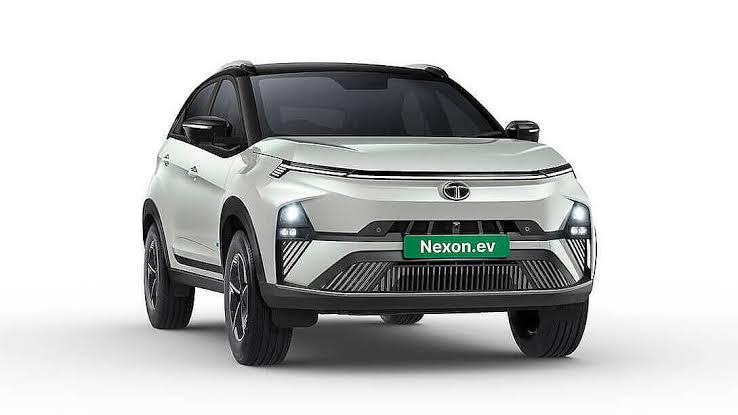
Gujarat emerging as a Hub:
Gujarat is becoming a major EV manufacturing hub with major automakers expanding there.
For example,
- At its Halol plant, MG Motors has started producing its recently launched electric vehicle (EV) and has revealed plans to invest Rs 5,000 crore in a second facility.
- The top automaker in India, Maruti Suzuki, plans to launch its first electric car this year from its Gujarat facility.
- Furthermore, Tata Motors has started up at the Sanand manufacturing facility it recently purchased.
Gujarat's electric vehicle (EV) market is expanding quickly with the government's support and high demand. The number of electric vehicle sales increased by 28% in 2023 to 88,619 units, a significant increase over the 10,885 units sold in 2021 and a remarkable 714% increase in just three years.
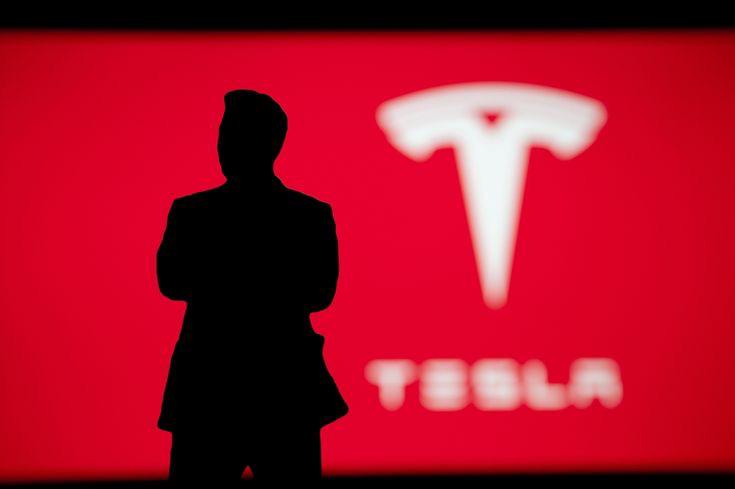
Government Initiative:
The Union Government approved a plan earlier in March to make India a leading centre for the production of advanced electric vehicles (EVs), aiming to attract investments from well-known international electric vehicle manufacturers and to improve the "Make in India" campaign so that Indian customers can have access to the newest technology. They will also help to reduce the amount of crude oil imported, reduce the trade deficit, lessen urban air pollution, especially in cities, and eventually have a positive impact on public health and the environment.
As per the PIB release, Key features of the policy include:
- Minimum investment requirement: Rs 4150 crore (approximately USD 500 million), with no upper limit.
- Manufacturing timeline: Companies must establish manufacturing facilities in India within three years, commence commercial production of EVs, and achieve a minimum of 50% domestic value addition (DVA) within five years.
- Domestic value addition (DVA) targets: Manufacturers must achieve a localization level of 25% by the third year and 50% by the fifth year.
- Customs duty: A 15% duty (as applicable to completely knocked-down units) would apply to vehicles with a minimum CIF value of USD 35,000 or more for five years, contingent upon the manufacturer establishing manufacturing facilities in India within three years.
- Duty forgone: There would be a cap on the total number of electric vehicles (EVs) that qualify for import duty exemption. The duty forgone would be equal to the investment made, or Rs 6484 crore, which is the equivalent of the PLI scheme's incentives, whichever is less. A total of 40,000 electric vehicles (EVs) could be purchased, with an annual limit of 8,000 if the investment surpasses USD 800 million. Annual import caps that are not used may be carried over.
- Investment commitment: Businesses are required to furnish a bank guarantee to bolster their investment commitment, which will be triggered if DVA and the minimum investment requirements specified in the scheme guidelines are not met.
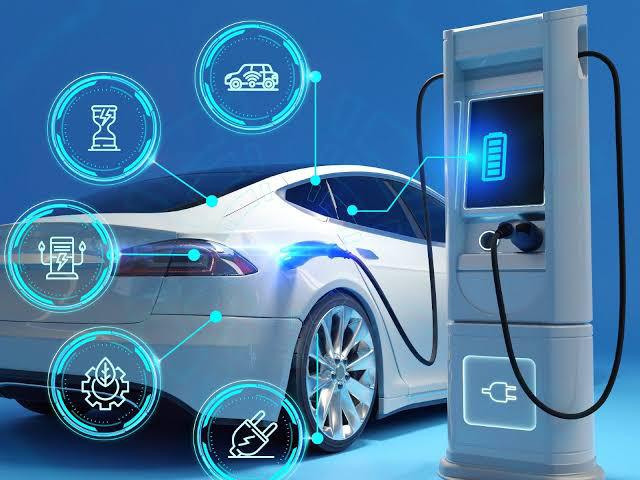
Moreover, The Faster Adoption and Manufacturing of Hybrid and Electric Vehicles in India (FAME India) program, Production-Linked Incentive (PLI) schemes aimed at the automotive and auto component sectors, and advanced chemistry cell (ACC) battery manufacturing are just a few of the initiatives that the Indian government has put into place.
Foreign Players Entry:
Lastly, The Vietnamese automaker VinFast aims to emerge as a rival to Tesla in the Indian market, as it plans to build a factory in Tamil Nadu, in the southern state of India, as part of a $2 billion investment, the announcement of this project was made in January.
(Inputs from Various Agencies)
©️ Copyright 2024. All Rights Reserved Powered by Vygr Media.

